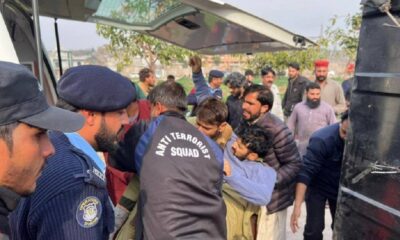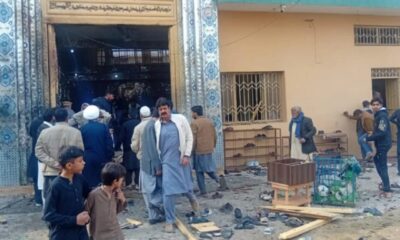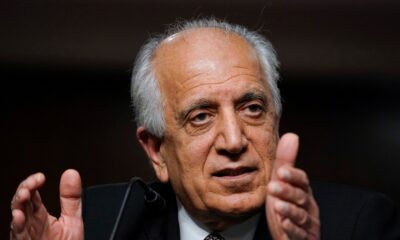Latest News
Taliban pose severe threat to govt and still close to al-Qaeda: UN report

An emboldened Taliban poses a severe and expanding threat to the government of Afghanistan, remains close to al-Qaeda, and believes it can return to power by force if necessary, according to a United Nations Security Council report released on Wednesday.
The report compiled by the UN Monitoring Team, which is tasked with tracking security threats in Afghanistan, paints a bleak picture of the security outlook, CNN reported.
The UNSC report comes half way through the US and foreign troops withdrawal from Afghanistan – a retrograde expected to be finished by September 11.
According to the agreement, signed last year between the US and the Taliban, the insurgent group pledged to cut ties with terrorist groups including al-Qaeda.
But the UN Monitoring Team says the Taliban remains “closely aligned” with al-Qaeda — which has threatened “war on all fronts” against the US.
The two groups “show no indication of breaking ties,” even if they have temporarily tried to mask their connections, according to the report, although it notes that the Taliban calls this “false information.”
According to the UN report, 2020 was the “most violent year ever recorded by the United Nations in Afghanistan.”
Security incidents have risen over 60% in the first three months of 2021 compared to the same period in 2020.
The UN team says that the Taliban is “reported to be responsible for the great majority of targeted assassinations that have become a feature of the violence in Afghanistan and that appear to be undertaken with the objective of weakening the capacity of the government and intimidating civil society.”
The report also indicates that part of the Taliban leadership has no interest in the peace process, saying that “both deputy leaders of the Taliban, Mullah Mohammad Yaqub Omari and Sirajuddin Haqqani are reported by Member States to oppose peace talks and favour a military solution.”
Haqqani is the commander of the Haqqani network, a powerful semi-autonomous force within the Taliban structure. According to the UN, Mullah Yaqub, son of the late Taliban founder Mullah Omar, was appointed as head of the Taliban’s Military Commission in May 2020.
The UN Monitors assess that the “security situation in Afghanistan remains as tense and challenging as at any time in recent history,” with member states reporting that the “Taliban have been emboldened to sustain attacks for longer periods while also exercising greater freedom of movement. This has allowed the Taliban to mass forces around key provincial capitals and district centres, enabling them to remain poised to launch attacks,” CNN reported.
The UN monitors added that many believe the Taliban are “seeking to shape future military operations when levels of departing foreign troops are no longer able to effectively respond.”
According to the UN report, member states assess that the Taliban “contest or control an estimated 50 to 70 percent of Afghan territory outside of urban centers, while also exerting direct control over 57 percent of district administrative centers.”
Asfandyar Mir, South Asia security analyst at Stanford University, says the Taliban appears ready to go on the offensive against the Afghan government. “Taliban is starting to put major pressure in provinces adjacent to Kabul — including, worryingly, in neighboring Laghman, which saw substantial Afghan security forces defections to the Taliban,” Mir told CNN.
“In the south of the country, the Taliban is poised to put more pressure on provincial capitals.”
The report assesses that, despite twenty years of warfare, Taliban numbers remain “robust” and “recruitment has remained steady” — with estimates of the insurgent group’s fighting strength ranging from 58,000 to 100,000, CNN reported.
Latest News
Islamic Emirate strongly condemns mosque bombing in Islamabad
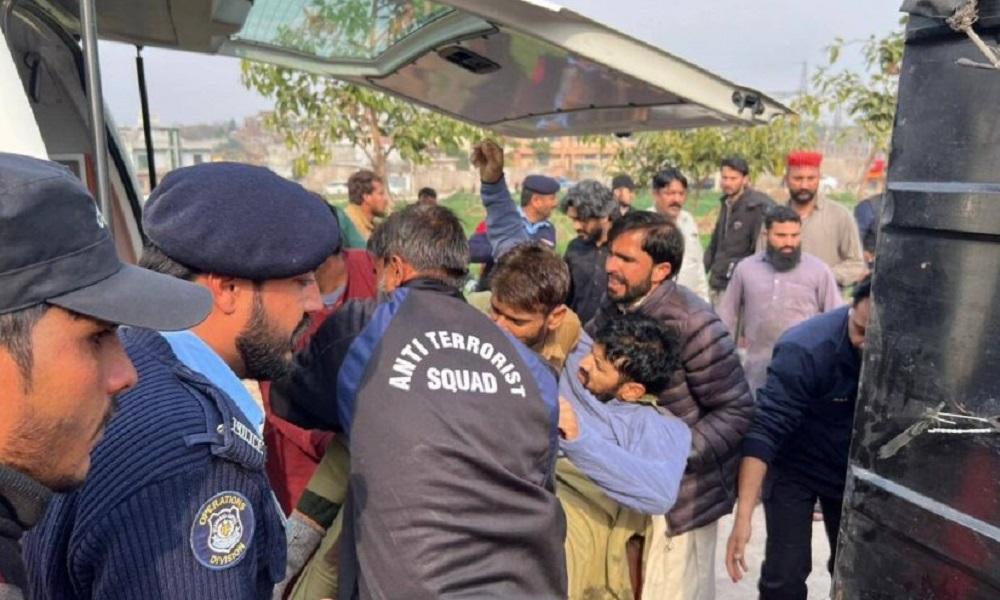
The Ministry of Foreign Affairs of the Islamic Emirate of Afghanistan has strongly condemned Friday’s suicide bombing at a Shi’ite mosque in Islamabad, the capital of Pakistan, which left 31 people dead and 179 others wounded.
Abdul Qahar Balkhi, spokesperson for the Ministry of Foreign Affairs, said in a statement that the Islamic Emirate considers such attacks—which violate the sanctity of religious rites and mosques and target worshippers and civilians—to be contrary to Islamic and human values.
The Islamic Emirate also expressed sympathy with the families of the victims and wished a speedy recovery to the wounded.
Latest News
Suicide bomber kills 31 in Shi’ite mosque in Pakistan’s capital
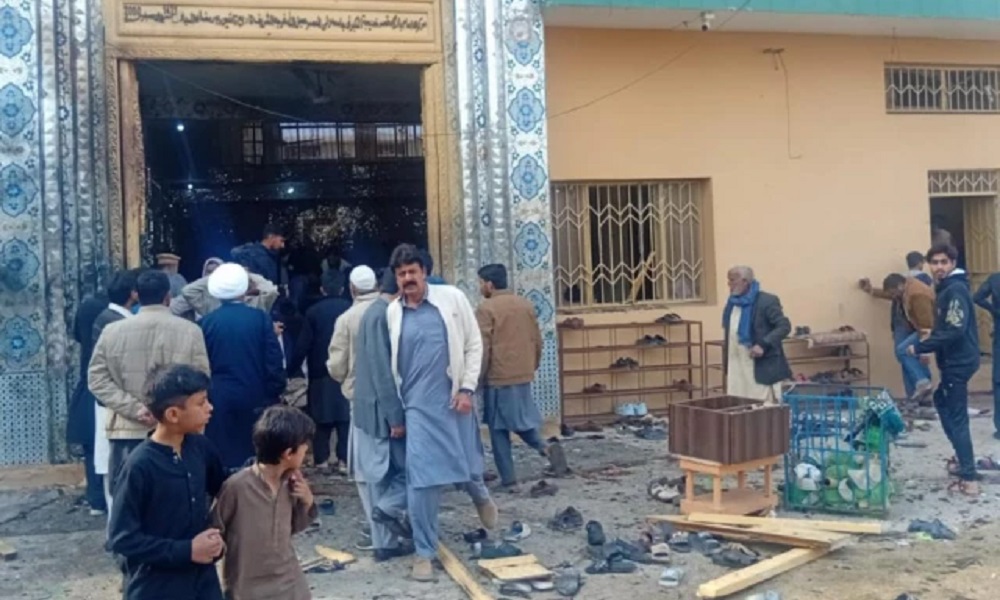
A suicide bomber killed at least 31 people and wounded nearly 170 others during Friday prayers at a Shi’ite Muslim mosque in Pakistan’s capital, Islamabad, Reuters reported, citing police and government officials.
Images from the site showed bloodied bodies lying on the carpeted mosque floor surrounded by shards of glass, debris and panicked worshippers.
Dozens more wounded were lying in the gardens of the Khadija Tul Kubra Imambargah, in a semi-urban area on the outskirts of Islamabad, as people called for help.
Bombings are rare in the heavily guarded capital, although Pakistan has been hit by a rising wave of militancy in the past few years.
“The death toll in the blast has risen. A total of 31 people have lost their lives. The number of wounded brought to hospitals has risen to 169,” Deputy Commissioner Islamabad Irfan Memon said in a statement.
Two police officials said the attacker was stopped at the gate of the mosque before detonating the bomb. They asked not to be identified as they were not authorized to speak to the media.
Latest News
Central Asian leaders are urging Pakistan to improve Afghanistan policies, says Khalilzad
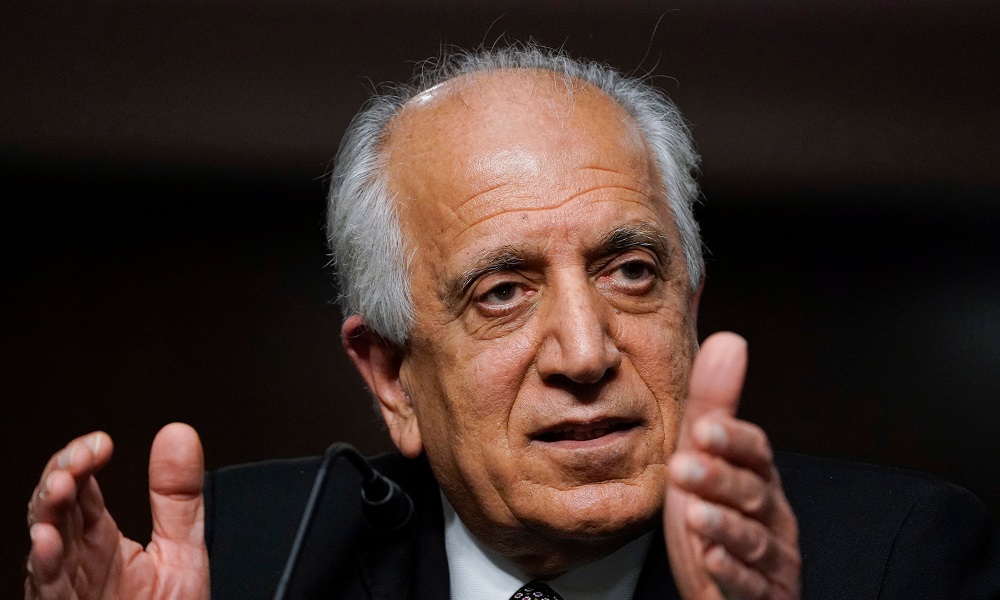
Former U.S. envoy Zalmay Khalilzad has highlighted the strategic importance of Pakistan’s relationship with Afghanistan, noting that visiting Central Asian leaders are likely encouraging Islamabad to strengthen its policies toward Kabul.
In a post on X, Khalilzad emphasized that Central Asian nations have a strategic interest in access to Pakistan and beyond, including the sea, to support their trade and connectivity projects. He pointed out that these countries are particularly focused on developing railways, pipelines, telecommunications, and electricity networks linking Central Asia and Pakistan—a move he said would also serve Pakistan’s interests.
“Of course, Afghanistan’s role is vital to the goal of regional connectivity and development,” Khalilzad said. “Stability in Afghanistan and good Pakistan/Afghanistan relations are the absolute prerequisite.”
He suggested that the Central Asian leaders visiting Islamabad are urging improvements in Pakistan’s Afghanistan policies and expressed hope that Pakistani authorities would listen to these recommendations.
Pakistani officials have repeatedly claimed that Afghanistan-based militants have carried out recent attacks in Pakistan. Kabul denied the charge, saying it could not be held responsible for security inside Pakistan.
Trade between the two countries remains suspended following a deadly clash near the Durand Line in October.
-

 Sport4 days ago
Sport4 days agoAFC Futsal Asian Cup 2026: Final eight confirmed
-

 Sport4 days ago
Sport4 days agoAfghanistan in new kit for T20 World Cup warm-up against Scotland
-

 Sport3 days ago
Sport3 days agoJapan trumps Afghanistan 6-0 in AFC Futsal Asian Cup quarter-final
-

 Sport2 days ago
Sport2 days agoHosts and heavyweights advance as AFC Futsal Asian Cup reaches semifinals
-

 International Sports4 days ago
International Sports4 days agoPakistan to boycott T20 World Cup group match against India
-

 Sport4 days ago
Sport4 days agoAfghanistan crush Scotland in ICC T20 World Cup warm-up
-

 Latest News1 day ago
Latest News1 day agoTerrorist threat in Afghanistan must be taken seriously, China tells UNSC
-

 Latest News2 days ago
Latest News2 days agoUzbekistan, Pakistan advance Trans-Afghan railway project




